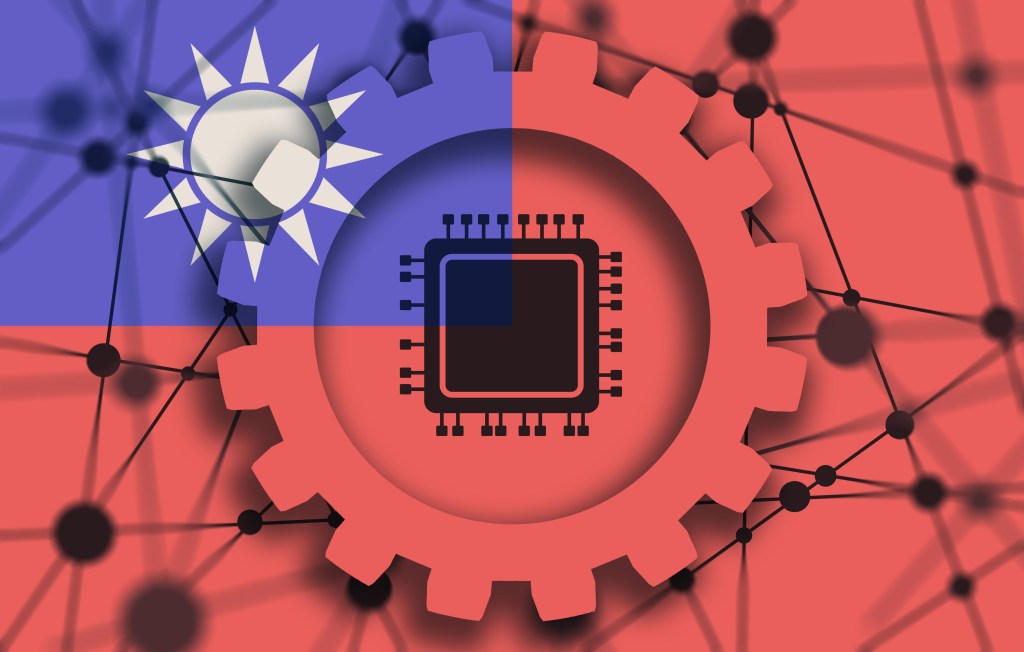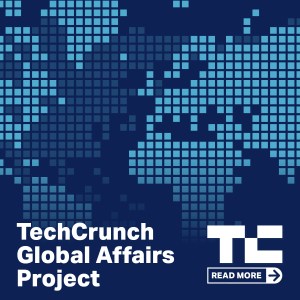Ciel Qi
The TechCrunch Global Affairs Project examines the increasingly intertwined relationship between the tech sector and global politics.
Over four days at the beginning of October, almost 150 Chinese military aircraft flew into Taiwan’s air defense identification zone, provoking criticism from Taiwan and the U.S. Amid such heightened tensions across the Taiwan Strait, Taiwan’s leader, Tsai Ing-wen, confirmed that U.S. forces are training with Taiwanese soldiers on the island; the Chinese foreign ministry countered with a warning that supporting Taiwanese independence would only lead to a “dead end.” At the end of the month, another eight Chinese aircraft, including six J-16 fighter jets, entered Taiwan’s air defense zone on the same day U.S. Secretary of State Antony Blinken met with his Chinese counterpart, Wang Yi, urging China not to change the status quo in the region.
That status quo in cross-strait relations dates back to 1979, when the U.S. switched diplomatic recognition from the Republic of China, based in Taiwan, to the People’s Republic of China that had taken over the mainland. China has long wanted to reunite with the island, which it views as a “rogue province,” but while Beijing has never ruled out the possibility of achieving this goal by force, it has been deterred from doing so by Washington’s strategic ambiguity as to whether it would come to the island’s defense. In recent years, the situation has become even more complex because of Taiwan’s essential role in the semiconductor industry.
Taiwan’s importance to the global semiconductor industry
According to TrendForce, a Taipei-based research firm, Taiwan’s semiconductor contract manufacturers accounted for 63% of total global foundry market share in 2020. A detailed breakdown shows that Taiwan Semiconductor Manufacturing Company (TSMC), the world’s largest contract chipmaker, alone contributed 54% of the global foundry market share. More recent data shows that even with its Fab 14 (P7) experiencing manufacturing disruptions, TSMC still made up almost 53% of global foundry market share for the second quarter of 2021.
In addition to producing the most chips, Taiwan’s foundries (including TSMC) produce the world’s most advanced chips, which can be found in all the highest-tech machinery — everything from cellphones to fighter jets. In fact, TSMC is responsible for an astonishing 92% of the world’s advanced chips production, making Taiwan’s semiconductor industry arguably the world’s most important.
And this means both the U.S. and China are dependent on it. According to a Nikkei report, TSMC produces computer chips used in F-35 fighter jets, high-performance chips for U.S. military suppliers such as Xilinx, and DoD-approved “military grade” chips. While the exact scale at which the U.S. military is dependent on Taiwanese chips is not known, it is significant enough that the U.S. government has pressured TSMC to shift its production of military-use chips to U.S. soil.
American industry, too, depends on Taiwanese semiconductors. It is believed that TSMC is the sole provider for Apple’s 5-nanometer processors, used in various Apple products including the iPhone 12, MacBook Air and MacBook Pro. TSMC also manufactures the A15 Bionic chips found inside Apple’s newest gadgets: the iPhone 13 and iPad mini. Of course, it’s not only Apple; TSMC’s customers also include major American companies, such as Qualcomm, Nvidia, AMD and Intel.
China is also dependent on foreign chips; in 2020, it imported around $300 billion worth. Unsurprisingly, Taiwan was the leading source. Despite a major effort to reduce its dependence on foreign chips, Chinese chip independence is a long way off; its most advanced homegrown semiconductor manufacturer, Semiconductor Manufacturing International Corporation (SMIC), is several generations behind TSMC. As SMIC tests a 7-nanometer chip, its Taiwanese rival has already moved on to the 3-nanometer process.
As a result, Chinese firms have no choice but to go to Taiwan. For example, Huawei, one of China’s leading tech firms, is believed to have been TSMC’s second-largest customer in 2020, relying almost totally on TSMC’s supplies for its 5-nanometer and 7-nanometer processors. For a sense of scale, Huawei accounted for 12% of the foundry’s total revenue last year.
War by other means
One need only look to earlier this year to understand just how vulnerable the semiconductor industry is. A “relatively muted” quarter, caused in part by a power outage, lost TSMC 1.6% of its global market share and contributed to the ongoing semiconductor shortage. Active interference by geopolitical actors in the industry could have much greater consequences.
The worst-case scenario, of course, is a cross-strait military confrontation, which would likely sever the chip supply chain altogether. But this isn’t the only possibility. As Taiwan is well aware, by exporting chips en masse to China, it is bolstering China’s technological development along with growing its own economy. If Taiwan were to take steps to reduce its reliance on China, for example by signing a free trade deal with the U.S., Taiwan might decide to cut off its chip trade with China entirely.
This would be an unaffordable situation for Beijing. Consider this: Since TSMC halted new orders from Huawei in response to the Trump administration’s tighter U.S. export controls, Huawei has had to stop the production of its high-end Kirin 9000 chipset using the 5-nanometer process. Moreover, the shortage of high-end chips will soon make Huawei unable to continue providing 5G-enabled cellphones, according to one company official.
A total loss of chips from Taiwan would call into question the ongoing development of China’s entire tech industry. This would not only infuriate China but pose a threat to its domestic stability, giving the Chinese government more incentive to take the island by force.
If some scenarios cut China off from Taiwanese chips, others would cut off the U.S. In a “peaceful reunification” scenario (where Taiwan is reunited with China without the use of force), Taiwanese foundries would likely find themselves under control of the Chinese government, posing a strategic problem for the U.S. The Chinese government could ask the foundries to stop exporting chips or put restrictions on how many chips they can export — chips the U.S. government needs to mobilize America’s most advanced military equipment.
And if TSMC stopped or limited providing chips to American companies, these companies could well find themselves in a situation similar to that of Huawei now (无芯可用 or “no chips to use,” as the new phrase goes in Chinese). While it is unlikely this would spur the U.S. to invade Taiwan to “de-unify” it, it may seek other means such as imposing sanctions on China to retaliate, further escalating tensions.
Needless to say, any of these scenarios would cause disruptions in global supply chains, leading to serious consequences for the entire world.
Taiwan’s semiconductor industry — shield or Achilles’ heel?
While Taiwan undoubtedly enjoys its current semiconductor dominance and the leverage that gives it over both China and the U.S., neither feel comfortable with the status quo — and both have taken measures to make the situation more favorable to themselves. The U.S. has persuaded TSMC to build chip factories in the country while China has hired more than 100 veteran engineers and managers from TSMC to boost its own pursuit of cutting-edge chip manufacturing.
This leaves an uncomfortable future for Taiwan. If Taiwan produced more of its semiconductors offshore, the island itself might attract less international attention. However, this could also give the U.S. less incentive to support Taiwan’s defense. A more widely distributed supply chain might also lessen a major barrier for China to take the island by force. For Taiwan, these are difficult but existential questions to answer.
Amid all this uncertainty, at least Taiwan’s position seems secure in the short term: Its nearest competitors in both China and the U.S. are still years behind, and even if they did catch up, fabs famously take years of planning and investment to get running. Absent any change in the status quo, it is unlikely either will be able to shift away from the island’s chip supply in the near term. But what is certain now more than ever, is that Chinese and American strategies on Taiwan will have to factor in the role of the island’s semiconductor industry.

































Comment